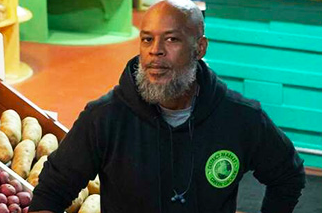When accessing healthy food, Black communities tend to have a more difficult time locating the resources they need. According to Feeding America, Blacks face hunger at higher rates than whites. In fact, in 2021, 20 percent of Black households dealt with food insecurity, which is more than three times the rate of white families.

In response to grocery stores shuttering their doors, businessmen like Robert Thomas have shifted gears and decided to fill the gaps. After his club shut down because of the pandemic, Thomas used his savings to provide a different type of joy for the community. He created the District Market Green Grocer, which is not only a grocery store but a juice bar that serves natural and organic products.
But Thomas isn’t the only Black-owned grocery store owner looking to bring fresh foods and opportunity to their community. Liz Abunaw, founder of Forty Acres Fresh Market in Chicago, shares a similar vision.
“What you’re seeing now is people saying enough is enough,” Abunaw told Grocery Dive. “We need food in our communities because we see the connection between food and health, and we want some type of ownership. We are tired of waiting on corporations to recognize our value as consumers and serve us where we live.”
Many Black-owned grocery stores work to provide accessibility in all aspects of their business, from cashier-less checkout to offering a wider variety of ethnic grocery options.
Although the overall poverty rate in the U.S. is 11.4 percent, the Black community has a rate of 19.5 percent and Black children are more likely to experience hunger than any other races, according to the USDA.
Olympia Auset, founder of Süprmarkt, an organic grocery store in Los Angeles, opened her grocery store based on similar struggles to access healthy choices in groceries.
“I would be on the bus for two hours every time I wanted to get fresh food,” Auset told Create & Cultivate. “I wanted my friends and family to eat healthier, but their two complaints were always cost and distance.”
These grocery owners aim to provide accessible foods at convenience, so people within their community don’t have to travel or search far and wide for the food they need to create a balanced diet.
“Don’t discount the value of this consumer, of people in underserved areas,” Abunaw said. “I think that Black working-class communities have been very neglected in this industry because there’s this notion that there’s no money to be made, and I don’t agree with that.”




